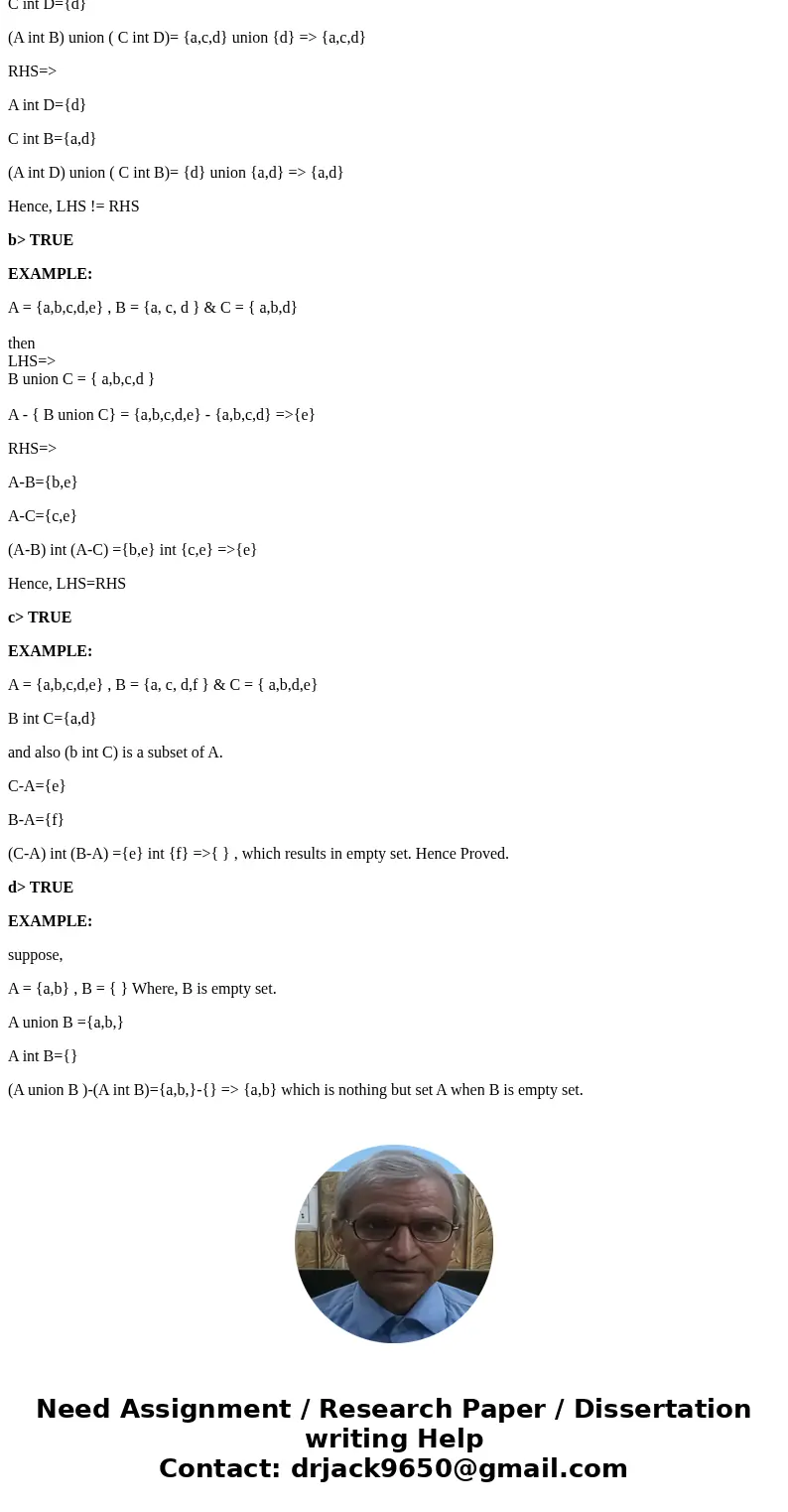Please answer and show your work Thumbs up guaranteed Thank
Please answer and show your work. Thumbs up guaranteed.
Thank you
For each of the following, determine whether it is valid or invalid. If valid then give a proof. If invalid then give a counter example (A B) (C D) = (A D) (C B) A-(B C) (A-B) (A-C) B C A (C - A) (B-A) is empty (A B) - (A B)= A B is emptySolution
a> FALSE
EXAMPLE:
suppose,
A = {a,b,c,d} , B = {a, c, d } , C = { a,b,d} , D={d,e}
LHS=>
A int B={a,c,d}
C int D={d}
(A int B) union ( C int D)= {a,c,d} union {d} => {a,c,d}
RHS=>
A int D={d}
C int B={a,d}
(A int D) union ( C int B)= {d} union {a,d} => {a,d}
Hence, LHS != RHS
b> TRUE
EXAMPLE:
A = {a,b,c,d,e} , B = {a, c, d } & C = { a,b,d}
then
LHS=>
B union C = { a,b,c,d }
A - { B union C} = {a,b,c,d,e} - {a,b,c,d} =>{e}
RHS=>
A-B={b,e}
A-C={c,e}
(A-B) int (A-C) ={b,e} int {c,e} =>{e}
Hence, LHS=RHS
c> TRUE
EXAMPLE:
A = {a,b,c,d,e} , B = {a, c, d,f } & C = { a,b,d,e}
B int C={a,d}
and also (b int C) is a subset of A.
C-A={e}
B-A={f}
(C-A) int (B-A) ={e} int {f} =>{ } , which results in empty set. Hence Proved.
d> TRUE
EXAMPLE:
suppose,
A = {a,b} , B = { } Where, B is empty set.
A union B ={a,b,}
A int B={}
(A union B )-(A int B)={a,b,}-{} => {a,b} which is nothing but set A when B is empty set.


 Homework Sourse
Homework Sourse